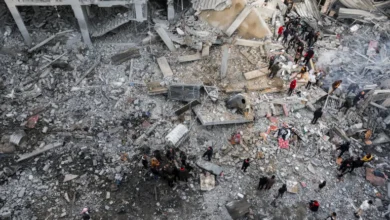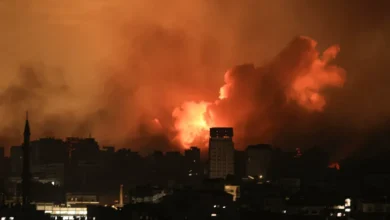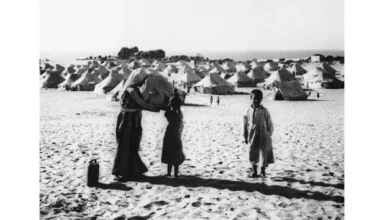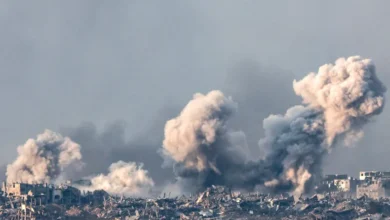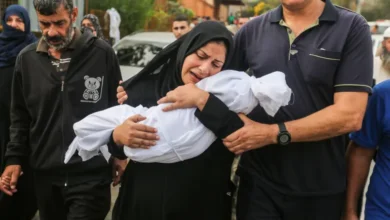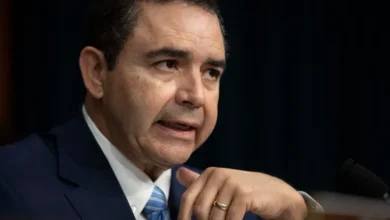From Ukraine to Gaza, UN needs urgent reform to tackle 21st-century crises
David Donoghue
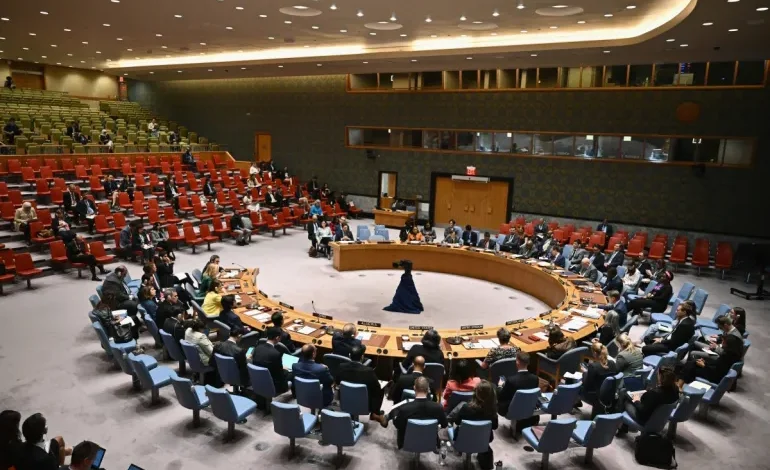
The United Nations rests on three equally important and interdependent pillars: sustainable development, peace and security, and human rights. In adopting the 2030 Agenda for Sustainable Development in 2015, world leaders emphasised that “sustainable development cannot be realised without peace and security”.
When the agenda was being negotiated, there was no guarantee that an agreement would be reached at this point. Many in the Global South had misgivings about including the pursuit of peace as a goal. They feared this would introduce unfair conditionality and be prejudicial to war-torn developing countries.
The Global North insisted it was not trying to introduce a peace condition, merely to recognise that violent conflict is not conducive to sustainable development and that peace is a legitimate development objective.
The compromise result was Sustainable Development Goal (SDG) 16, which recognises the central importance of the achievement of both peace and development by ensuring inclusive institutions, the rule of law, the protection of human rights and access to justice.
Today there is little doubt about the interdependence between peace and sustainable development. The escalation of armed conflict in various parts of the world is one of the main factors inhibiting progress on the SDGs.
Russia’s invasion of Ukraine, for example, is having multiple disruptive impacts on many states, including those affected by food supply or energy repercussions. The Gaza war is causing massive upheaval in the Middle East.
More generally, the polarising effect of such crises is eroding the international consensus which gave rise to the SDGs and weakening the readiness of states to commit to multilateral cooperation and solidarity.
Reform and renewal
We are living in a world of increasing and diverse threats to international peace and security. This is a major challenge for the UN, charged under the UN Charter (as the very first of the organisation’s purposes) with “the maintenance of international peace and security”. Is the UN fit for this purpose in the 21st century? Do its institutions and resourcing enable it to play the role expected of it since 1945 in relation to conflict prevention and the safeguarding of peace? Or is the UN being rendered obsolete by big-power competition, by its own outdated rules and by gradual international neglect of the toolbox it has at its disposal?
Small wonder that these issues are among the priorities for the Summit of the Future, which meets in New York on September 22-23.
Never has it been more urgent to reinvigorate the role of the UN in identifying space for dialogue, negotiation and compromise and helping member states resolve conflict. A key question is what needs to be done, institutionally and fiscally, to strengthen the UN’s capacities to manage increasingly complex and multifaceted crises.
The Security Council is clearly anachronistic, reflecting in its permanent membership and in the latter’s veto rights a world order which has long been out of date. For example, although two-thirds of the council’s business relates to African issues, there are no permanent African members.
Many leading regional players, such as Brazil, India, Japan or Germany, make a case for permanent membership which might be considered stronger than that of some of the existing five.
We live in a patently multipolar world, the days of one or two superpowers long behind us. No state, however large or powerful, can solve the world’s challenges on its own.
All states need allies, whether the agenda is that of defusing direct threats to international peace and security or making progress on global public goods such as climate action, sustainable development and human rights (which make their own contributions to global security).
In the General Assembly, the interconnectedness between all such issues is clearly recognised.
The UNSC, however, is trapped in a time-warp, dominated by a veto-wielding permanent membership which is reflective of 1945 geopolitical realities rather than today’s.
The requirement for agreement among the permanent members limits the council’s ability to decide what constitutes a threat to international peace and security and how this should be responded to.
While disunity among the five has long been a feature of the UNSC’s work, the last few years have seen an escalation in the traditional polarities. Trade disputes and strategic tensions have been intensified by bitter confrontations over Syria, Ukraine and Gaza. The growing competition between the United States and China for world hegemony is increasingly fuelling discord in the council.
It is the veto rights of the five which do most to bring the UNSC into disrepute.
Russia regularly vetoes draft resolutions which it sees as threatening its interests in Syria or Ukraine. The US does the same if it considers Israel’s interests to be threatened.
The effect is to paralyse this key UN organ in its ability to act.
